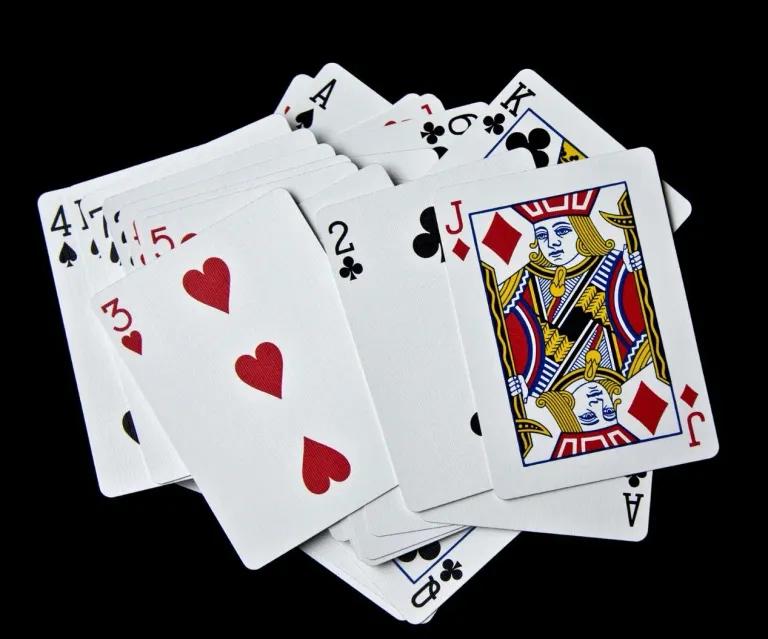Rules of Mao - Part 1

Rules of Mao Part of the traditional experience of Mao is a new player being forced to learn some or all of the rules of the game through observation and trial and error. Thus new players are not usually presented with a list of rules, as part of the game is to discover the rules through gameplay. Mao rules can vary widely between different groups with no individual set of rules being canonical. This is one representative version containing more common elements.
Public rules, the exact set of rules divulged to new players varies between groups of players: some groups will say only "the only rule I can tell you is this one", others will reveal the goal of eliminating cards, and some might outline the basic rules. However much information is revealed, the players will explain that they are "not allowed" to reveal any more, and that the new player must deduce the full rules during play.One common way of beginning a game is to say, "Rule number one: it's kind of like Uno or Crazy Eights. Rule number two: I can't tell you any more rules."The discussion of rules is often penalized with cards at the commencement of the next game. Rules Of Play Mao is a card game of the Shedding family (also called the Stops family) in which the objective is to get rid of all of the cards in your hand. It is very similar to the card game Uno or Crazy Eights.
Each player is dealt an initial hand with an equal number of cards; the exact number of cards dealt varies, but is generally either five or seven. The size of the deck also varies; it is good to have approximately one 52-card deck for every two or three players (or, in games with new players, one deck for every player), but missing or extra cards are not terribly important to gameplay. Two or more combined decks is common; matching card backs aren't important, either. Once the cards are dealt, the remaining cards are placed face down in a stack in the middle of the table, and the top card from the stack is turned over and placed next to it. In some variants, play commences with the player to the left of the dealer and proceeds clockwise; in others, the dealer chooses who begins and which direction it proceeds. Many variants penalize players for touching their hands, or looking at their hands before the game begins or before the dealer looks at his or her hand.
A player may play any card in his hand which matches either the value or the suit of the card currently lying face-up on the table. The card played must be placed on top of this card, and the next player will have to play a card that matches the new one. If the player has no cards he can play, he must instead draw a new card from the top of the stack lying face-down and, in most variants, say something such as "Pass", "Penalty Card" or knock on the table to indicate inability to play a card. Usually, his turn is lost and he cannot play after he draws a card, though in some varieties, you can play the penalty card, or are forced to draw until you get a playable card. Finally, in some varieties this rule is only a 'suggested' rule, and you can simply pass. Usually, this is not done until a couple of games later in order to confuse new players ("You mean, we never actually HAD to draw cards?"). Most variants share a few basic types of special cards. These include:
A face value that reverses order of play when played (commonly eight, but not always)
Aces cause the next player to skip his turn
Jacks are commonly wild, allowing any player to call out a new suit when a jack is played
Spade cards must be named when played (eg, playing an ace of spades requires the player to say "ace of spades"). Some variants will randomly nominate one particular suit to be constantly named when played, up to the discretion of the Dealer.
A seven forces the next player to draw a penalty card and requires the person who played it to announce "have a nice day." If the next player also plays a seven, he announces "have a very nice day" and the player after that draws two penalty cards. The number of "very"s and penalty cards can increase as long as sevens can be played. In some variants, a red seven requires the player to announce "have a nice day", and a black seven requires the player to announce "have a very nice day".
Playing a card upon a card of the same value (effectively changing suits, in single-deck games) is acknowledged, in some variants, by knocking on the table, or whatever playing surface is being used.
In some variants in which multiple decks are used, any player who has a card in his or her hand which is identical to the card just played may play that card, whether or not it is his or her turn. Play will then proceed with the player whose turn it would have been had not the interruption occurred.
In some American variations a player is required to say "Baseball" when they play a two.
